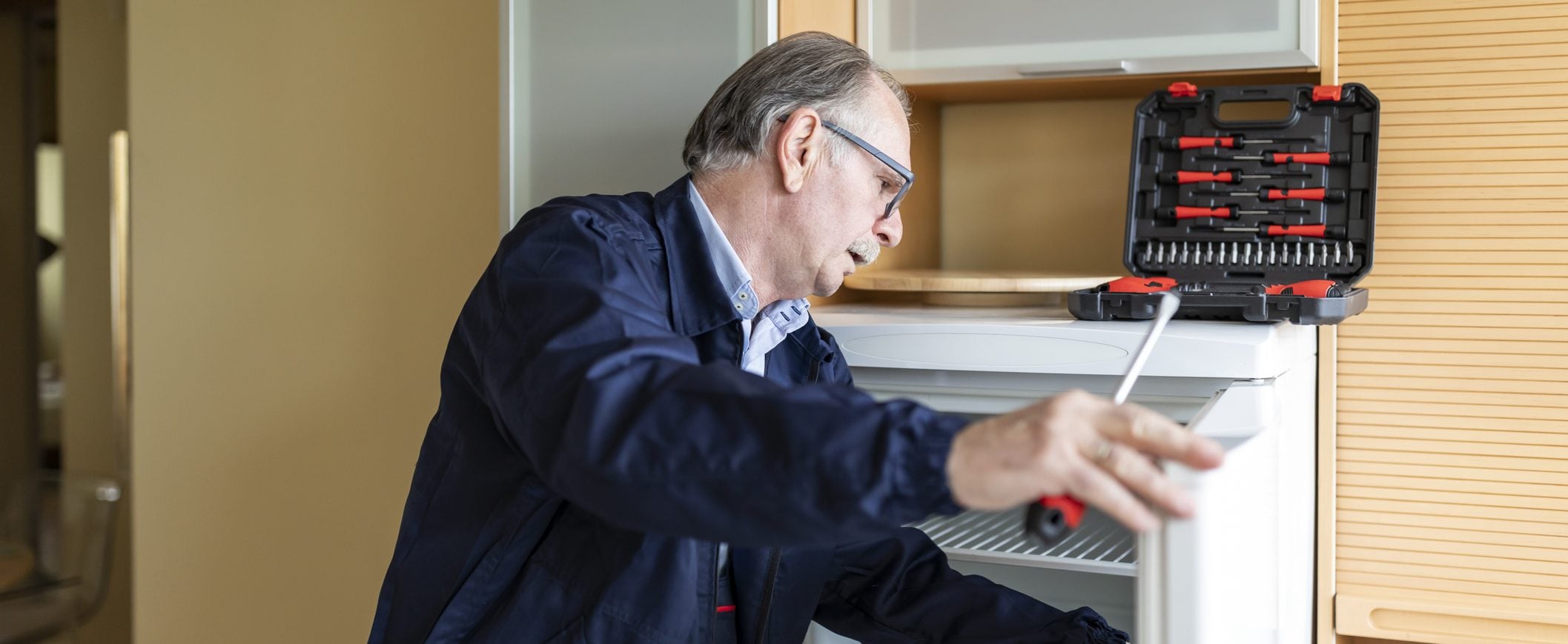What is an emergency fund, and why is it important to have one?
From unexpected bills to job loss, life’s unplanned expenses can throw a wrench into your finances. Here’s how an emergency fund can help, plus tips on when and how to use your emergency fund.
Christine Luken, an author and personal finance blogger, learned the importance of an emergency fund the hard way.
“Before I had an emergency fund, if I had an unexpected car repair or a vet bill, I had two problems,” she says. “The original emergency and a money problem.”
Those challenging experiences led her to an important realization: The unexpected can happen at any time. It’s Murphy’s law, after all: If something can go wrong, it will.
Whatever the reason, when costly emergencies arise or life takes an unexpected turn, you’ll likely need a financial cushion to fall back on. So perhaps you’re wondering: What is an emergency fund, and why is it important? You’re in the right place to find out. You’ll also learn how much to keep in your emergency fund, plus how to manage the fund through various ups and downs and how to rebuild it if used.
What is an emergency fund?
An emergency fund (aka a rainy-day fund) is cash that’s set aside to cover the cost of unexpected, and often expensive, events. These savings are meant to be used for real, urgent needs—like to pay rent when your income dries up or to foot an unplanned medical bill. Of all the emergency fund benefits, the biggest one is that it allows you to pay for life’s necessities without having to rack up a balance on your credit card, take out a loan, or tap into your home’s equity.
An emergency fund is not a personal slush fund for when your skis break or you’re eyeing a new dress for your best friend’s wedding. (Nice try!) Knowing when to use your emergency fund is as important as knowing why you need one.

Why is it important to have money in an emergency fund?
For Luken, the need for an emergency fund became clear when her car’s alternator failed. She had to resort to payday loans to pay to fix it, and that led to credit problems.
“That started a cycle of payday loans that spiraled out of control,” she says. “I ended up bouncing a check to the payday lender.”
Setting up an emergency fund by opening a savings account was transformative for Luken, who recommends saving at least 6 months’ worth of your salary for unexpected costs.
“My emergency fund is like a shock absorber between me and life,” she says. “I still have vet bills and car repairs, but they are less stressful and disruptive because I have the money in savings to cover the cost.”
Consider these four common situations where you may need a safety net and an emergency fund would come in handy:
1. Job loss
Your emergency fund is there for you if you lose your primary source of income. “People lose their job unexpectedly and have had to figure it out,” says David Wright, a personal finance blogger. “If they had an emergency fund, they could have cash available to pay their rent, utilities, etc. Without that fund, how would you be able to make ends meet?”
It can also help you continue an upward career trajectory if you happen to lose your job. Your emergency fund grants you the time you need to make a thoughtful choice about what your next career move will be and financially prepare for a job transition.
“If you have an emergency fund, you can focus on finding the next job that’s right for you,” Luken says. “If you’re financially desperate, you may feel pressured to take the first position that you’re offered, even if it’s not the best fit.”
2. Medical or dental bills
Whether it’s an unexpected illness or a major accident, an emergency fund helps you pay for big medical expenses that could otherwise hurt you financially.
Even if you have medical or dental insurance, you could still have to pay for all or part of your care out of pocket. In addition to deductibles, some procedures might not be covered, or you may max out your coverage for nonessential health care in your plan year.
If you’re looking for reasons to have an emergency fund, imagine scrambling to come up with the funds to cover a medical emergency, rather than taking care of yourself. “When you’re not worried about the cost of your medical care,” Luken says, “you can concentrate on getting better.”

3. Home repairs
Imagine this: You’re sitting down on the couch to watch a movie with a big bowl of popcorn and suddenly your toilet begins overflowing. Not only would that ruin your evening plans, but an expensive visit from the plumber could break your budget. Yet another good reason to stockpile some emergency savings.
“While most people have homeowners insurance, there are expenses that aren’t covered by insurance,” Wright says. “Even if the expenses are covered, the insurance provider may be slow to pay.”
With an emergency fund, you’ll be able to pay for unforeseen but necessary home repairs—like if you need to repair or replace appliances—without having to charge large sums to your credit card.
“If you did have unexpected expenses and paid for them with your credit card,” Wright says, “your emergency fund will help you pay off that card without incurring any interest expenses.”

4. Auto repairs
As Luken learned, you’ll want to add car repairs to the list of reasons to have an emergency fund. Having a working car is critical for many people. If you don’t have a car, you might have difficulty making it into the office on time or have to default to a taxi or a ride-hailing service—which could quickly become expensive.
With an emergency fund, you’ll be able to cover the cost of an expensive car repair or accident. Even if your car is insured, you may still have to pay the deductible in the event of an accident, and common car repairs like new brakes, spark plugs, or a timing belt could set you back hundreds of dollars.
“If you don’t have an emergency fund, you might be forced to choose a repair provider who will approve you for payments, rather than the one who has the best overall price and quality,” Wright says. “This alone could save you 15% to 20% if you had the cash to pay for repairs upfront.”
So, what is an emergency fund? It’s whatever you need it to be when times get tough. But as you start tapping into it, you might also want to learn some tips for managing it:
When and how to use your emergency fund
Emergency funds can help foot the bill in the event of unexpected medical and dental bills, home and auto repairs, and job losses, but they can also cover other unanticipated costs. For instance, recent years have seen rising costs on everything from food to gas.
Basically, if you think your short-term checking account isn’t going to cover any essential bills or expenses, such as housing, utilities, and food, then you should use your emergency fund. By the way, if you’re wondering where to keep your emergency fund, consider high interest rate savings accounts, money market accounts, CDs, and IRAs. Products and services that aren’t essential, such as TV streaming services or magazine subscriptions, fall into the “want” category. They should not be paid for with emergency funds.
“You really want to make sure you keep your emergency fund for emergencies that must be addressed right now,” says Jim Wang, founder of a personal finance blog.
If you’re considering when to spend your emergency fund, you should first be actively removing costly nice-to-haves from your life. Not sure what expenses to cut? Sort through your monthly statements and highlight anything that isn’t absolutely required. “While it may be hard to cut some subscriptions, just tell yourself that it’s only temporary and you can sign back up at a later time,” Wang says.
As you decide how to use your emergency fund, Wang advises against dipping into the fund for minor or non-essential expenses with the expectation to rebuild after another paycheck—especially during times of financial hardship.
“You really want to make sure you keep your emergency fund for emergencies that must be addressed right now.”
More emergency fund tips
Here are some other tips for keeping your emergency fund in a healthy place:
Try to keep saving money
When dealing with a financial emergency, it’s only natural to wonder if you should pull from investments, retirement funds, or savings accounts not designated for emergencies.
But while it might be tempting to dip into investments and cash out, it’s important to remember one of the top tips for investing in volatile markets: Try to keep focused on your long-term investing goals even when you’re using your emergency fund. After all, you alone can’t keep the market from going up, down, or sideways, but you can keep your investments on an upward trajectory. “Think about your investment as a time capsule,” Wang says. “You can put stuff in, but you can’t take anything out.”
Opting to use your emergency fund instead of dipping into other high-priority, often long-term savings, or investment vehicles will allow the accounts to grow over time without disruption.
Adjust your budget accordingly
As you determine when to spend your emergency fund and how, you’ll also want to rework your budget to reflect your new normal—especially if you’ve experienced a change in your income. To extend the life of your emergency fund and determine how to use it more effectively, seek money-saving alternatives or work to earn short-term, supplementary income.
In addition to cutting back on expenses, try to find ways to save money in your daily life. Maybe you can cook at home instead of ordering delivery, or you can finally tame your online impulse buying. If your financial situation gets more severe, you can also seek out community resources, like a local food pantry, to offset essential expenses that may be difficult to cover at the moment.
If you’re employed and have some extra time to spare, consider some ways to make money on the side. A side hustle is a great way to supplement your current income and keep up with minor expenses without having to spend your emergency fund or dip into your savings accounts.
“After you’ve cut your expenses, you can look for ways to earn a little extra income, which may take the form of odd jobs, like walking dogs or delivering food,” Wang says. “You can also try to find jobs that are strictly online, like transcription or becoming a virtual assistant. If you’re willing to do a little extra digging, there are plenty of opportunities.”

Rebuild your emergency fund
If you are faced with an opportunity to use your emergency fund, you’ll likely be motivated to get it back to the state it was in before the emergency. The approach to replenishing lost funds is no different than building your funds, Wang says. Budgeting can help you reach your financial goals for your emergency fund just like it can for other short-term savings goals—or longer-term ones.
“Experts say you should aim to get 6 to 12 months of expenses into an emergency fund, but you can’t be expected to get that [amount] within a month,” says Wang.
If your budget has $100 of surplus each month after you’ve cut back on expenses, found money-saving alternatives, or explored a side hustle, you can save your first $1,000 in 10 months. During that same time frame, if you can, try to find ways to cut expenses further so that you can reach that amount sooner or put your money-saving alternatives or extra income to use.
How much should you have in your emergency fund?
As you’re considering how much you should have in your emergency fund, a good goal to strive for is anywhere from 3 to 6 to 12 months’ worth of living expenses. Keeping enough money to cover at least 3 months—and maybe even a year of living expenses—will give you a decent financial cushion in the event of an unforeseen job loss or costly medical and dental bills or home and auto repairs.
That means if your living expenses run about $3,000 a month, a $10,000 emergency fund would help you cover a little more than 3 months of your expenses. But if your monthly budget is much larger, you would need to have more in your rainy day fund to cover three to six months of living expenses.
So, how much should you have in your emergency fund? Take a good look at your monthly expenses, multiply that figure by 3 (or more) months, and you’ll find your answer.
“Think about your investment as a time capsule. You can put stuff in, but you can’t take anything out.”
Emergency savings: Next steps to take
Luken, who took about a year to save her emergency fund, loves the peace of mind that her savings offer.
“I never want to go without one again,” she says. “It helps me sleep better at night knowing I can handle life’s financial ups and downs.”
Now that you understand what an emergency fund is and why it’s important, it’s time to make the next move: building one for yourself. But how? Take these four steps to start building an emergency fund.
Articles may contain information from third parties. The inclusion of such information does not imply an affiliation with the bank or bank sponsorship, endorsement, or verification regarding the third party or information.
The information provided herein is for informational purposes only and is not intended to be construed as professional advice. Nothing contained in this article shall give rise to, or be construed to give rise to, any obligation or liability whatsoever on the part of Discover, a division of Capital One, N.A., or its affiliates.



